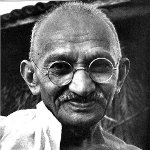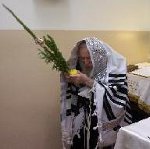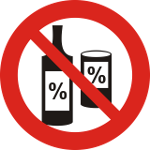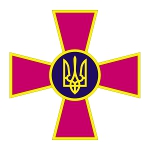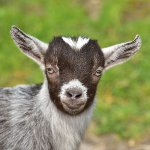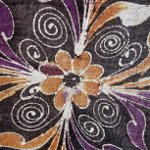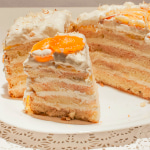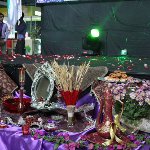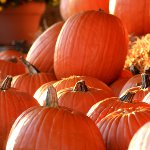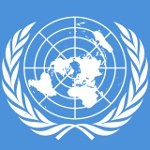Holidays Calendar for October 2, 2016
Independence Day in Guinea is celebrated on October 2. This public holiday commemorates the independence of the Republic of Guinea from France in 1958.
Mahatma Gandhi's Birthday (Gandhi Jayanti) is one of the three national holidays celebrated in India, the other two being Republic Day and Independence Day. It is observed on October 2. Mahatma Gandhi is often unofficially referred to as the Father of the Indian Nation.
Sukkot is a seven-day Jewish holiday. Its celebration starts on the 15th day of Tishrei. Along with Pesach and Shavuot, it belongs to Shalosh Regalim (the Three Pilgrimage Festivals), on which the Israelites were required to make a pilgrimage to the Holy Temple.
World No Alcohol Day is observed annually on October 2. It was created to promote temperance, educate the general public on the dangers of alcohol, and encourage people to give up drinking alcoholic beverages.
In some former Soviet republics, Teacher's Day is celebrated on the first Sunday in October. This professional holiday was officially established in 1965 by the presidium of the Supreme Soviet of the Soviet Union.
Territorial Defense Day in Ukraine is observed annually on the first Sunday of October. It was officially established by President Volodymyr Zelensky’s decree in September 2020 and celebrated for the first time on October 4, 2020.
Every year billions of animals are slaughtered for food and almost all of them are kept in farms. World Day for Farmed Animals, observed annually on October 2, was established to raise public awareness about these animals
National Batik Day (Hari Batik Nasional) is an Indonesian holiday celebrated on October 2. It marks the anniversary of the day Indonesian batik was designated as a Masterpiece of Oral and Intangible Heritage of Humanity in 2009.
Tender and sweet fried scallops are a very delightful dish. No wonder there even is a holiday dedicated to them. National Fried Scallops Day is celebrated on October 2.
Whipped Cream Cake Day (Gräddtårtans dag), also translated as simply Cream Cake Day, is celebrated in Sweden on the first Sunday of October. It honors a type of layer cake that is popular in Sweden, Norway, and other Nordic countries.
Mehregan is an ancient Zoroastrian and Persian festival of autumn. It is still celebrated in present-day Iran, falling on the 196th day of the year in the Persian calendar (October 2 in the Gregorian calendar).
On the first Sunday of October, Germans celebrate the harvest festival known as Erntedankfest, Erntedank or Erntefest. It is somewhat similar to Thanksgiving festivals in other countries because it focuses on thanking the God for the harvest gifts.
International Day of Non-Violence is an annual observance that was established by the United Nations General Assembly in 2007. The day is observed on October 2, marking the birth anniversary of Mahatma Gandhi.
Italian grandfathers and grandmothers annually celebrate their favorite holiday, Grandparents' Day on October 2. This holiday was introduced by the government of Italy in 2005.
Father's Day in Luxembourg is celebrated on the first Sunday in October. Although it is not a public holiday, it is observed by many Luxembourgians who want to express love and gratitude to their fathers.
Grandparents' Day exists in the United Kingdom for a long time, but it's still not so popular, as Mother's Day and Father's Day. Annually many organizations promote it and special cards are printed to congratulate elderly people on this holiday.
South Africa takes a number of steps to improve life and protect rights and interests of elder persons. Celebration of Grandparents' Day on the first Sunday in October highlights the achievements made by the government.
Festivals for October 2, 2016
- Marino Grape Festival in Marino, Italy
- Helsinki Baltic Herring Market in Helsinki, Finland
- Martin McDonagh International Festival in Perm, Russia
- Carolina Renaissance Festival in Huntersville, USA
- Connecticut Renaissance Faire in North Haven, USA
- Paris Motor Show in Paris, France
- Ballinasloe Horse Fair & Festival in Ballinasloe, Ireland
- Albuquerque International Balloon Fiesta in Albuquerque, USA
- International Festival of Comics and Games in Lodz in Lodz, Poland
- Indonesia Comic Con in Jakarta, Indonesia
- GITEX Shopper in Dubai, UAE
- Lviv IT Arena in Lviv, Ukraine
- New York Film Festival in New York, USA
- Bath Children’s Literature Festival in Bath, United Kingdom
- Romics in Rome, Italy
This Day in History
- 2017 Died: Tom Petty, American musician, singer, songwriter, multi instrumentalist and record producer. He was best known as the lead singer of Tom Petty and the Heartbreakers.
- 2008 Died: Rob Guest, British-born Australian actor and singer, best known for his work in Australian musical theater in various productions of The Phantom of the Opera.
- 2006 American milk truck driver Charles Carl Roberts started shooting at an Amish school in Nickel Mines, Pennsylvania. He killed five girls before committing suicide.
- 1996 Aeroperú Flight 603 en route from Miami, Florida to Santiago, Chile with stopovers in Ecuador and Peru crashed into the Pacific Ocean shortly after the takeoff from Lima, Peru. All 70 people on board died.
- 1990 Xiamen Airlines Flight 8301 was hijacked and landed at Guangzhou, where it crashed into two other airliners on the ground, killing 132 people.
- 1988 Died: Alec Issigonis, British-Greek automotive designer. He designed the Mini, launched by the British Motor Corporation in 1959, and voted the second most influential car of the 20th century in 1999.
- 1987 Died: Peter Medawar, British biologist, known for his work on graft rejection and the discovery of acquired immune tolerance. In 1960 he was awarded the Nobel Prize in Physiology or Medicine.
- 1985 Died: Rock Hudson, American actor, best known for his leading roles in Hollywood films of the 1950s and 1960s. His notable film credits include Magnificent Obsession, Giant, Pillow Tank, Send Me No Flowers etc.
- 1973 Died: Paavo Nurmi, Finnish runner, nicknamed the Flying Finn. He set 22 official world records and won a total of 9 gold and 3 silver medals in his 12 events in the Olympic Games.
- 1973 Born: Lene Nystrøm, Norwegian singer-songwriter, best known as the lead vocalist of the Danish-Norwegian dance pop group Aqua that achieved huge success during the late 1990s and early 2000s.
- 1970 Born: Kelly Ripa, American actress and talk show host. She is best known for her role as Hayley Vaughan on All My Children and for co-hosting the popular syndicated morning talk show Live! with Kelly and Mark.
- 1968 Died: Marcel Duchamp, French painter, sculptor, chess player, and writer whose work is associated with Cubism, Dada, and conceptual art. He had an immense impact on 20th- and 21st-century art.
- 1968 Mexican President Gustavo Díaz Ordaz ordered soldiers to suppress a demonstration of unarmed students, ten days before the start of the 1968 Summer Olympics.
- 1960 Born: Django Bates, British jazz musician, composer, multi-instrumentalist, band leader and educator. His bands have included Human Chain, Delightful Precipice, Quiet Nights, Powder Room Collapse Orchestra, and Belovèd.
- 1959 The first season of The Twilight Zone premiered on CBS. It has since spawned off a successful media franchise.
- 1951 Born: Sting (stage name of Gordon Sumner), English musician, singer, activist and actor. His accolades (as of 2024) include 17 Grammy Awards, a Golden Globe, an Emmy, and four nominations for the Academy Award for Best Original Song.
- 1949 Born: Annie Leibovitz, American photographer, known for her professional portraits of celebrities. She had been the last person to professionally photograph Lennon before he was killed four hours later.
- 1948 Born: Avery Brooks, American actor, director, singer, narrator and educator. He is best known for his television role as Captain Benjamin Sisko on Star Trek: Deep Space Nine.
- 1948 Born: Donna Karan, American fashion designer, the founder of the Donna Karan New York (DKNY) clothing label.
- 1937 President of the Dominican Republic Rafael Trujillo ordered the execution of the Haitian population living within the borderlands. Approximately 20,000 were killed over the next five days.
- 1933 Born: John Gurdon, English developmental biologist, best known for his pioneering research in nuclear transplantation. In 2012 he shared the Nobel Prize in Physiology or Medicine for the discovery that mature cells can be converted to stem cells.
- 1931 Died: Thomas Lipton, Scottish entrepreneur and yachtsman, known as the creator of the Lipton tea brand.
- 1927 Died: Svante Arrhenius, Swedish scientist, one of the founders of physical chemistry. He was involved in setting up the Nobel Institutes and the Nobel Prizes.
- 1920 Died: Max Bruch, German composer and conductor, the author of over 200 works, including three violin concertos. One of his concertos became a staple of the violin repertory.
- 1917 Born: Christian de Duve, Belgian cytologist and biochemist, remembered for his serendipitous discoveries of two cells organelles, peroxisome and lysosome.
- 1904 Born: Graham Greene, English writer, regarded as one of the greatest writers of the 20th century. He wrote 25 novels during his career, including The Man Within, The Power and the Glory, and Our Man in Havana.
- 1869 Born: Mahatma Gandhi, Indian activist and philosopher, the leader of Indian nonviolent independence movement. He inspired a number of peaceful movements for civil rights and freedoms across the world.
- 1852 Born: William Ramsay, British chemist, best known for the discovery of noble gases. His discovery brought him the Nobel Prize in Chemistry in 1904.
- 1814 The Spanish Royalist troops under Mariano Osorio defeated rebel the Chilean forces led by Bernardo O'Higgins in the Battle of Rancagua. This put an end to the Chilean Partia Vieja.
- 1804 Died: Nicolas-Joseph Cugnot, French inventor, known to have built the first working self-propelled mechanical vehicle, i.e. is the world's first automobile.
- 1789 George Washington sent the Constitutional amendments (now known as the United States Bill of Rights) to the various States for ratification.
- 1535 Jacques Cartier became the first European to visit the settlement of Hochelaga in Canada. Seventy years later Samuel Champlain established a fur trading post there, which would eventually become Montreal.
- 1263 The Battle of Largs was fought between the kingdoms of Norway and Scotland. It was one of the most important battles during the Scottish-Norwegian War, with Scotland defeating Norway.

